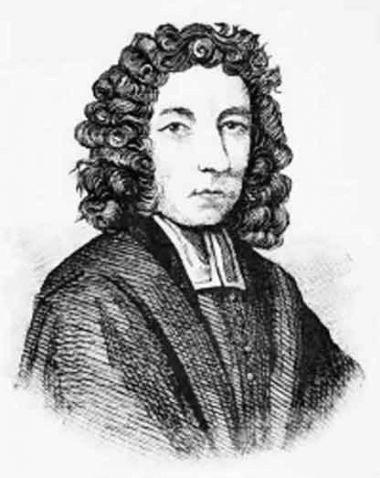The Baptist hero who survived prison for the 'damnable doctrine' of infant baptism
Benjamin Keach (1640-1704) was a great English Baptist hero, who on this day in 1664 was tried by Lord Chief Justice Hyde for his heretical opinions.

Keach had written a book of instruction for children. Though it's now lost, his Baptist beliefs – particularly that infant baptism was wrong and that only those who could answer for themselves should be baptised – drew Hyde's ire. In those tense and dangerous days after the Civil War and the Restoration of the Monarchy in 1660, the state control of religion was regarded as vital, and Baptists and others who stood outside the Church of England were regarded as enemies of the state.
When Keach tried to defend himself, Hyde said: 'You shall not preach here, nor give the reasons of your damnable doctrine, to seduce and infect his majesty's subjects. These are not things for such as you are to meddle with, and to pretend to write books of divinity...'
Keach was sentenced to two weeks in prison – and prisons in those days were very dangerous places, where sickness was rife because of poor condition – and to stand in the pillory, a post with a crossbar securing the head and hands for two successive Saturdays. It was the custom for the rowdy onlookers to pelt pilloried prisoners with filth and rotten vegetables, and even with stones, and death or serious injury wasn't uncommon.
Keach, however, seems to have escaped this because of the respect in which he was held. While he stood there his book was burned by the public hangman in front of him, and he was also fined £20 (about £3,800 in today's money).
One account says: 'On the pillory at Aylesbury Mr Keach defended himself and the truth with great boldness. The jailer frequently interrupted him. and finally the sheriff himself threatened to have him gagged. The people, contrary to custom, had no words of mockery for the good, persecuted minister, and no offensive missile was hurled at him. An Episcopal minister who ventured to assail Mr Keach in the pillory was immediately reproached by the people with the ungodliness of his own life, and his voice was drowned in laughter.'
Keach was a brave disciple, like many of those early Nonconformists, who had his fair share of trials and tribulations. He was threatened with death when a troop of mounted soldiers were about to trample his bound body, but an officer intervened and he was spared. He and his family were attacked by robbers on on their way to London, where he was to found the church of which CH Spurgeon was to become minister; they arrived in the city with nothing but the clothes on their backs and the London Baptists had to take up collections for them.
Perhaps his most long-lasting contribution to Baptist life, however, was that he introduced congregational hymn-singing, against the objections of many even in his own church. Previously hymn-singing was regarded as unscriptural, with congregations only singing psalms, if that. However, in 1691 Keach published The Breach Repaired in God's Worship, or, Singing of Psalms, Hymns, and Spiritual Songs, Proved to be an Holy Ordinance of Jesus Christ with an Answer to All Objections. The title may not be particularly snappy, but Keach's arguments won the day. He wrote about 300 himself, though none are commonly sung today.











